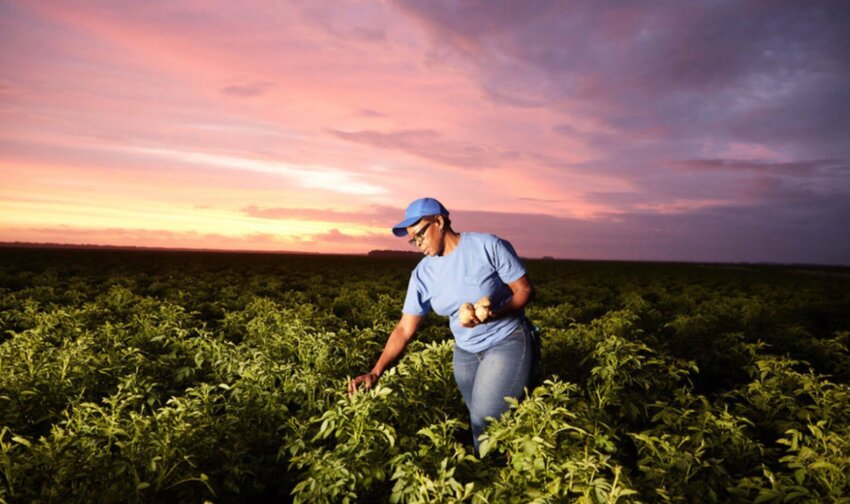 (Credit: PepsiCo)
(Credit: PepsiCo)PepsiCo will eliminate at least three million tons of greenhouse gas emissions by 2030 through a new agenda that will source crops in a way intended to accelerate regenerative agriculture across seven million acres — equal to the amount of land used around the world to grow the ingredients used in the company’s products. The company will work with farmers to adopt practices that build resilience and improve and restore ecosystems, with a goal of sustainably sourcing 100% of its key ingredients by 2030, PepsiCo says.
Additionally, PepsiCo will work to grow its “demonstration farms,” which enable peer-to-peer learning. More than 80% of the company’s 350 demonstration farms use regenerative farming practices.
PepsiCo says many of its brands have already adopted agriculture solutions that fit into its new Positive Agriculture approach. For example, PepsiCo's Walkers brand in the UK worked with CCm Technologies to introduce new circular potatoes technology that uses potato peelings to manufacture low-carbon, nutrient-rich fertilizer. Use of this fertilizer is expected to reduce Walkers' carbon emissions from growing potatoes by 70%. Additionally, Quaker has developed the Opti-Oat initiative, which uses over one million data points to guide farmers in how to grow the "perfect oat," improving yields and creating a more sustainable source of oats.
"Through our Sustainable Farming Program and ongoing work with tens of thousands of farmers, we've seen first-hand the ability to drive solutions within our agricultural communities, resulting in nature-based outcomes," says Jim Andrew, chief sustainability officer for PepsiCo. By focusing on regenerative agriculture practices at the local level to improve soil health, the company can build a stronger foundation for its products and help make the entire food system more sustainable, Andrew says.
PepsiCo is currently advocating for the establishment of industry-wide regenerative agriculture standards and measurement, but in the absence of such standards, the company will measure progress towards its Positive Agriculture goals by tracking acres and people engaged in the initiative and, over time, the impact toward five key outcomes, including: building soil health and fertility; sequestering carbon and reducing emissions; enhancing watershed health; increasing biodiversity; and improving farmer livelihoods. PepsiCo is engaged with leading organizations like the World Wildlife Fund (WWF) to develop a method for setting science-based targets for water that consider the benefits of regenerative and resilient farming systems and practices on water quality and water quantity.
The Positive Agriculture agenda follows PepsiCo's recent announcement to double its science-based climate goal, targeting a reduction of absolute greenhouse gas emissions across its value chain by more than 40% by 2030, as well as pledging to achieve net-zero emissions by 2040.
Join PepsiCo North America senior VP and Chief Sustainability Officer Jason Blake for a keynote during the Environment + Energy Leader Solutions Summit, July 20-21. Register today.